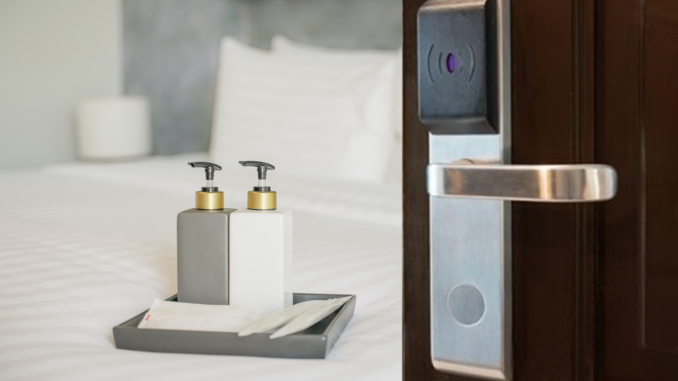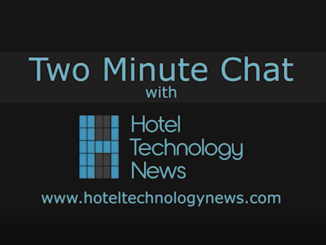
By Brian Shedd, Vice President Global Sales & Marketing, OpenKey - 3.14.2020
The global coronavirus pandemic will likely change aspects of the hospitality business forever. Travelling (especially routine business travel) has always presented challenges to staying healthy – one reason business travelers tend to get sick more often than others. It’s difficult to stay healthy when travelling for a number of reasons that include a tendency to work longer hours, forego exercise, eat less nutritious food and exposure to lots of people and environments. Stress, lack of exercise and poor food choices reduce the body’s immune system and ability to fight off illness. And viruses such as COVID-19 can be deadly for people without robust immune systems.
Travel presents a particular challenge when a disease or virus is spread through the air as public environments such as airports, airplanes, restaurants and hotels typically place people in close proximity to each other, making airborne transmission easier and more likely. The coronavirus COVID-19 is transmitted via air as well as contact with surfaces that have been touched by an infected person, making it especially difficult for travelers to avoid coming in contact with. It also creates a difficult challenge for hotels to prevent virus transmission to staff and guests.
Addressing The Causes
There are plenty of contagious diseases that we live with everyday such as the flu, colds or strep throat. Although similar in many ways to those respiratory viruses, COVID-19 is from an entirely different family of viruses and behaves somewhat differently, including an incubation period of up to two weeks before signs appear and a higher mortality rate. Efforts in China to limit spread of the infection through addressing the methods of transmission have proven successful so far. That means enforcing strict practices of personal hygiene, regularly disinfecting public area surfaces and practicing social distancing to prevent airborne transmission.
How Hotel Technology Helps
Human trials on a vaccine against coronavirus are due to start in April, with British scientists projecting it may be 18 months or more before an effective drug is ready for mass production. Since it takes only 3 weeks to change a habit, it seems highly likely that precautions travelers and hotels are taking now will become standard practice going forward. One way hotels can address the need to reduce staff exposure to guests – and guest exposure to large numbers of people in close proximity – is through modern hotel technology.
Fortunately, solutions exist that improve the guest experience at a hotel, reduce staff workload, eliminate lines at the front desk and make social distancing possible without eliminating business travel and bankrupting the hospitality industry. Hotel technology such as mobile check-in, mobile key, mobile check-out and AI-driven guest request platforms help hotels improve guest service by empowering the guest to control more elements of their stay from the security of their own smartphone. Living with the new reality of social-distancing will likely speed implementation of smart hotel rooms that allow guests to control all aspects of their room such as TV, music, temperature, lighting, etc from their smartphone also. Ancillary technology in room such as tablets, remotes, cables, etc will become obsolete as a result.
The Healthy Guest
The guest experience in hotels will likely change more in 2020 than in any year before. For the guest, that could mean an improved stay experience while also limiting factors that lead to compromising health while travelling. They say change is the only constant – and this year should prove to demonstrate how hotels can use change as a catalyst for improvement.
 Leading the global Sales and Marketing teams for OpenKey, the largest mobile key technology startup, Brian Shedd brings senior level expertise from both the Las Vegas Strip and Madison Avenue. As an executive with Mandalay Resort Group, Brian was responsible for marketing over 7000 rooms, 2 casinos, 9 restaurants and 3 entertainment venues. Brian holds a Master’s degree in Hospitality Administration from the University of Nevada in Las Vegas and a B.S degree in Business Administration from San Jose State University.
Leading the global Sales and Marketing teams for OpenKey, the largest mobile key technology startup, Brian Shedd brings senior level expertise from both the Las Vegas Strip and Madison Avenue. As an executive with Mandalay Resort Group, Brian was responsible for marketing over 7000 rooms, 2 casinos, 9 restaurants and 3 entertainment venues. Brian holds a Master’s degree in Hospitality Administration from the University of Nevada in Las Vegas and a B.S degree in Business Administration from San Jose State University.
Are you an industry thought leader with a point of view on hotel technology that you would like to share with our readers? If so, we invite you to review our editorial guidelines and submit your article for publishing consideration.

